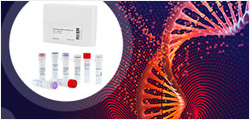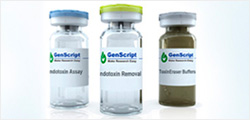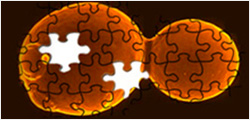PVR/CD155 His, Human
*This product has been discontinued!*
PVR is a Type I transmembrane glycoprotein in the immunoglobulin superfamily. Commonly known as Poliovirus Receptor (PVR) due to its involvement in the cellular poliovirus infection in primates. PVR's normal cellular function is in the establishment of intercellular adherens junctions between epithelial cells. PVR/CD155 was originally isolated based on its ability to mediate polio virus attachment to host cells. The full length (or PVR alpha isoform) is synthesized as a 417 amino acid (aa) precursor that contains a 20aa signal sequence, a 323aa extracellular region, a 24aa TM segment and a 50aa cytoplasmic tail. PVR binds other molecules including Vitronectin, Nectin-3, DNAM-1/CD226, CD96, and TIGIT but does not bind homotypically. PVR is up-regulated on endothelial cells by IFN-gamma and is highly expressed on immature thymocytes, lymph node dendritic cells, and tumor cells of epithelial and neuronal origin.
| Z03436 | |
|
|
|
|
|
|
| Ask us a question | |








































